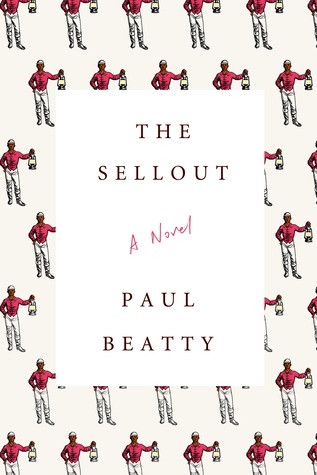 I laughed quite a bit reading this book. Paul Beatty's imaginative inventions are clever and often hilarious, things that seem pulled out of left field, but that are put together much more carefully than they initially appear. And while I can't say I've read many books that caused me to laugh out loud more often than this one, something about it, somehow, still ended up feeling unsatisfying. This feels like a lengthy stand-up routine with loose strands of plot, and I guess when something is built up as a "Swiftian satire" and "a powerful novel of vital import," there's bound to be disappointment.
I laughed quite a bit reading this book. Paul Beatty's imaginative inventions are clever and often hilarious, things that seem pulled out of left field, but that are put together much more carefully than they initially appear. And while I can't say I've read many books that caused me to laugh out loud more often than this one, something about it, somehow, still ended up feeling unsatisfying. This feels like a lengthy stand-up routine with loose strands of plot, and I guess when something is built up as a "Swiftian satire" and "a powerful novel of vital import," there's bound to be disappointment.Beatty's manic energy is overwhelming at first, especially when coupled with his massively long sentence structure. A paragraph later you're left breathless, both because of the laughter and because you're still trying to digest what you just read. The style almost forces the reader to forge ahead recklessly along with him, even though there are speed bumps telling you to slow down, such as the many references scattered throughout his work, many of which you might not know (I sure didn't). This mania does slow down eventually, and this is where the novel is at its best. The description of the main character's father, a psychologist whose social experiments on his son are simultaneously hilarious and sad. The satire comes from the fact that some of the novel's characters want to institute some form of racism, such as the black ex-Little Rascals actor who wants to be a slave or the bus that magically becomes safer when a sign indicating "Whites Only" is placed at the front.
But The Sellout isn't just social satire. There is plenty of humor of the self-deprecating variety, especially in regards to the main character's failed love life. These parts, along with the comical attempt to put a town, Dickens, back on the map (labeling one border with the opening line of A Tale of Two Cities), are feeble attempts at plot. Beatty doesn't seem very interested in plot, really. He allows his writing to travel where his mind takes it, offering plenty of social commentary, often in the form of a series of three lists. So many of the jokes begin to feel repetitive due to Beatty's insistence on using lists as his jokes, and usually one of the three items includes a basketball player's silly smugness over the ability to throw a ball into a hoop. Funny, yes. Hilariously funny, in fact. Glad I read it? Yes. Did it change my life or my perspective on race or the U.S.? Perhaps not. In a world of information overload, this is probably inevitable, so I guess it's okay to have a good laugh along the way.
No comments:
Post a Comment